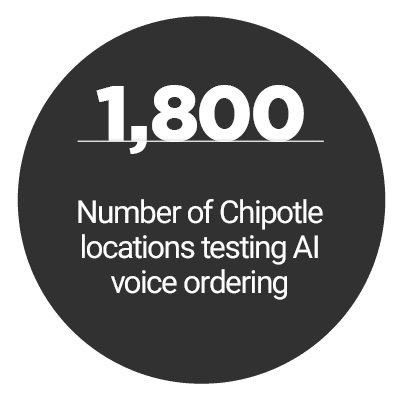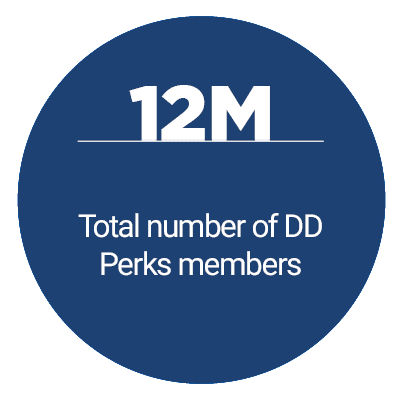Digital food ordering is more popular than ever, with restaurant delivery expected to grow at three times the rate of on-site dining between 2018 and 2023. More than half of these delivery orders are projected to come from restaurant branded apps or websites.
Quick-service restaurants (QSRs) are employing increasingly sophisticated automated tools like artificial intelligence (AI) and machine learning (ML) to keep pace with the growth of delivery and mobile order-ahead. These technologies are leveraged in both customer-facing applications like voice-activated ordering systems and in back-of-house functions to provide staff with more efficient order processing and inventory fulfillment.
In the September Mobile Order-Ahead Tracker, PYMNTS explores the latest developments in the world of digital ordering, including the rise of AI and ML in QSRs, new delivery programs from Panera Bread and Postmates, and how QSRs and app developers are protecting themselves against fraud.
 Developments From Around The Mobile Order-Ahead World
Developments From Around The Mobile Order-Ahead World
Fast-casual restaurant and bakery Panera Bread recently announced partnerships with DoorDash, Grubhub and Uber Eats to expand its mobile ordering options. When ordering through the third-party platforms, food is delivered by Panera’s drivers. Delivery orders currently account for 7 percent of the chain’s total sales.
Advertisement: Scroll to Continue
Third-party platforms are also expanding their capabilities. Postmates recently introduced group ordering, enabling customers to create groups and set dollar limits for each person. The group creator can also set tip amounts before orders are placed. Postmates’ group ordering option lacks several features its competitors offer, however, including bill splitting with Venmo and allowing an entire office to place a single order.
Other third-party platforms, however, have found themselves in hot water. A group of restaurants has alleged that Yelp has replaced the “Takeout and Delivery” phone number on restaurants’ pages with Grubhub phone numbers, meaning that customers have been inadvertently placing orders through the third-party platform. This has allowed Grubhub to charge restaurants with service fees. Yelp has since begun to specifically label which phone numbers are affiliated with Grubhub as a result.
For more on these and other mobile order-ahead news items, download this month’s Tracker.
Dunkin’s Loyalty Program Runs On AI
Dunkin’ is one of the largest QSR chains in the world, with 11,300 locations in 36 countries. One of the tools fueling its omnipresence is DD Perks, its mobile loyalty program that rewards customers with free donuts or coffee. Behind the scenes of this service is a sophisticated AI network that leverages data analytics to send customers targeted offers at specific times. For this month’s Feature Story, PYMNTS spoke with Stephanie Meltzer-Paul, Dunkin’s vice president of digital and loyalty marketing, on powering DD Perks with AI and the insights the program provides.
 Deep Dive: How Artificial Intelligence Makes QSRs Smarter
Deep Dive: How Artificial Intelligence Makes QSRs Smarter
AI and ML are rapidly making inroads in a variety of sectors, automating or supplementing many jobs that were once done by hand. QSRs are no exception, with AI-powered voice ordering, inventory management and self-service kiosks becoming more commonplace. This month’s Deep Dive explores how AI and ML applications are affecting QSRs and how they work in tandem with human employees.
About the Tracker
The Mobile Order-Ahead Tracker™, done in collaboration with Kount, serves as a monthly framework for the space, providing coverage of the most recent news and trends, along with a provider directory highlighting the key players across the segments that comprise the mobile order-ahead ecosystem.

